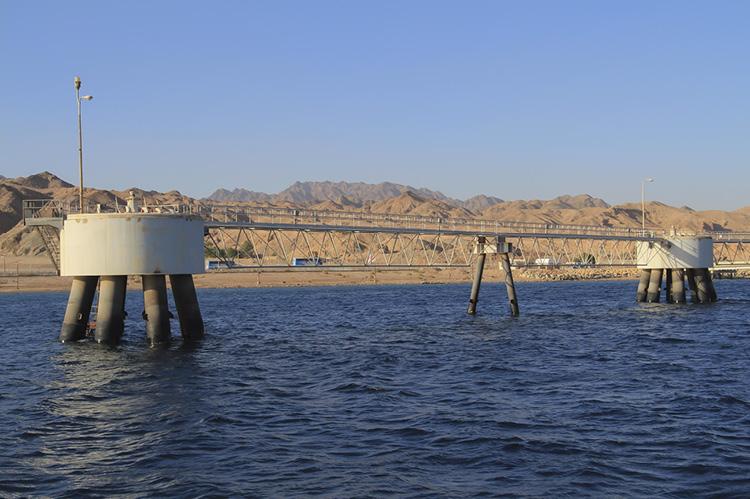Pipeline Proposals to Re-Define East West Relations in the Middle East

Sir Isaac Newton, in his "Principia Mathematica Philosophiae Naturalis" says that for every action (force) in nature there is an equal and opposite reaction. As Israel considers re-purposing the decades old Ashkelon - Eilat oil pipeline, it is discovering a multiple of possible opposite reactions, not all in the strategic interests of the beleaguered country.
The Ashkelon - Eilat crude oil pipeline system -- operated by the Europe Asia Pipeline Company (EAPC) -- consists of three pipelines. The largest of them is a 42″ diameter pipeline 254 km long linking the Eilat oil port on the Red Sea coast with the Ashkelon oil port on the Mediterranean coast. Two additional pipelines supply the refineries in Haifa and Ashdod.
Because of rapidly shifting geopolitical alliances in the region, most recently and notably the blossoming relationship between Israel and the United Arab Emirates as well as Israel's growing involvement in the exclusive economic zone dispute between Turkey and Greece over competing claims to energy reserves in contested Eastern Mediterranean waters, the Ashkelon - Eilat crude oil pipeline system has taken on new and enhanced strategic importance.
The UAE deal “opens a lot of doors and opportunities,” CEO Izik Levi of the Europe Asia Pipeline Company told Foreign Policy on September 4. There is no longer a barrier, he explained, for transporting Persian Gulf oil through the pipeline and to Western European markets.
The initiative to re-purpose the pipeline – this time to carry oil from the Persian Gulf to Europe – is supported by all of the allies in the anti-Turkish coalition. After all, if the idea came to fruition it would limit the importance of the Kirkuk–Ceyhan Pipeline, thereby minimizing the role of Turkey in global energy markets.
Under President RacepTayyip Erdogan Turkey has strived to establish itself as the region's preeminent power. His policy of Neo-Ottomanism involves aggressive intervention in areas previously under the control of the erstwhile Ottoman empire.
In November 2019, Erdogan claimed a shared Exclusive Economic Zone (EEZ) with the North African nation of Libya, spanning the width of the Mediterranean Sea and cutting straight through Greece’s territorial waters.
In January of this year, Israeli Prime Minister Benjamin Netanyahu signed an agreement with his Greek and Cypriot counterparts for an Eastern Mediterranean pipeline (EastMed) to ship gas from the three nations’ gas fields to Europe via Crete. The EastMed is a planned 1900-km offshore/onshore natural gas pipeline, directly connecting East Mediterranean energy resources to mainland Greece via Cyprus and Crete.The project, currently in design, will transport natural gas from the off-shore gas reserves in the Levantine Basin into Greece, and in conjunction with the Poseidon and IGB pipelines into Italy and other European regions.
Comments
OIL AND GAS PIPELINES
I am interested in constructing, extensions and technology of the oil and gas pipelines .

